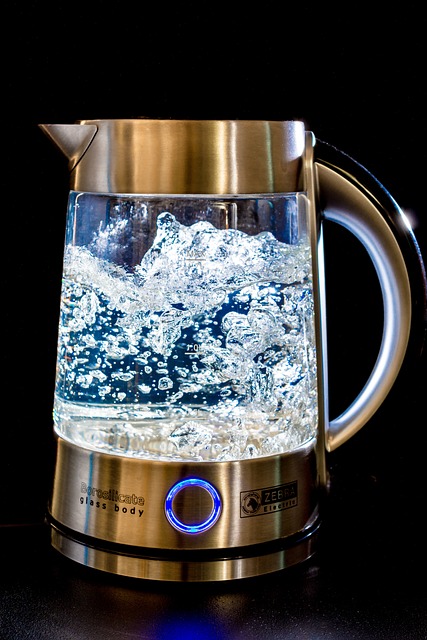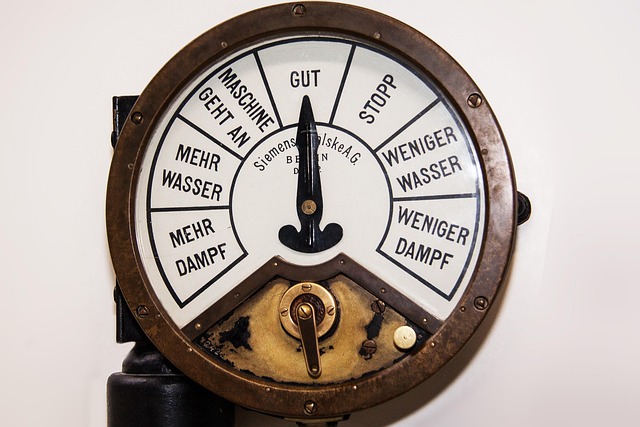Regular water heater maintenance is crucial to prevent safety hazards, extend life expectancy, and ensure consistent hot water pressure. Look for signs like temperature/pressure drops, rust buildup, and leaks, addressing issues early through checks for corrosion, drainage problems, and noises. Perform annual inspections, flushing, and cleaning to prevent debris buildup. For low water pressure, inspect the pressure relief valve and supply lines; complex issues may require professional diagnosis. Proactive care optimizes performance and prevents major disruptions.
Is your water heater acting up? Don’t panic! Understanding common issues like no hot water, weak pressure, or strange noises is the first step. This guide breaks down everything you need to know about diagnosing and fixing—or replacing—your water heater.
Learn when repairs are worth the cost versus upgrading to a new model. We’ll walk you through essential maintenance tips, from regular inspections to flushing, ensuring your water heater runs smoothly for years. Keep your home’s hot water flowing with expert advice on water heater maintenance.
Identifying Common Water Heater Issues

Water heater problems can range from minor inconveniences to major safety hazards, making it crucial for homeowners to be able to identify common issues. One of the first signs that your water heater needs attention is a significant drop in water temperature or pressure. This could indicate corrosion inside the tank, which over time can reduce its efficiency and capacity. Another frequent problem is excessive rust buildup on the exterior of the heater, often caused by leaks or poor drainage.
Regular water heater maintenance is key to preventing these issues from escalating. Homeowners should periodically check for any signs of leakage, corroded parts, or unusual noises coming from the heater. If left unattended, small problems can lead to major malfunctions, such as tank failures or even gas leaks. By addressing these common water heater issues early on, you can extend the life of your appliance and ensure safe, consistent hot water for your household.
– No hot water

If you find yourself without hot water, it could be due to a variety of reasons and is often a common issue that requires attention during water heater maintenance. Start by checking if other taps in your home are also experiencing this problem. If only one tap is affected, the issue might be localized to that fixture’s temperature setting or a problem with the heating element inside the water heater itself.
In many cases, resetting the thermostat can resolve the issue. This involves turning off the water heater, waiting for it to cool down, and then adjusting the temperature settings. If this doesn’t work, you may need to inspect the heating element for any debris or calcification buildup, which could be preventing proper heating. Regular maintenance, including flushing and cleaning, is crucial to prevent such accumulations, ensuring optimal performance and longevity of your water heater.
– Weak water pressure

Low water pressure can be a common issue with water heaters, often indicating a problem within the heating system or plumbing. Before considering a replacement, it’s essential to perform basic water heater maintenance checks. Start by inspecting the pressure relief valve for any debris or corrosion; cleaning or replacing it may restore optimal pressure. Check the supply lines for leaks or restrictions, as even minor clogs or damage can significantly impact flow.
If these initial troubleshooting steps don’t resolve the issue, it might be time to call a professional. They can diagnose more complex problems like faulty heaters, corroded pipes, or issues with the temperature control valve. Regular water heater maintenance, including annual inspections and cleaning, can help prevent such issues and ensure your system operates efficiently, maintaining consistent hot water pressure throughout your home.
When it comes to water heater maintenance, knowing when to repair and when to replace is crucial. If you’re experiencing issues like no hot water or weak water pressure, don’t ignore them—they could indicate problems that are easier and more cost-effective to address early on. Regular check-ups and prompt action can save you from unexpected breakdowns and potentially costly repairs down the line. Implement these troubleshooting tips to extend the life of your water heater and ensure reliable access to hot water for years to come.
